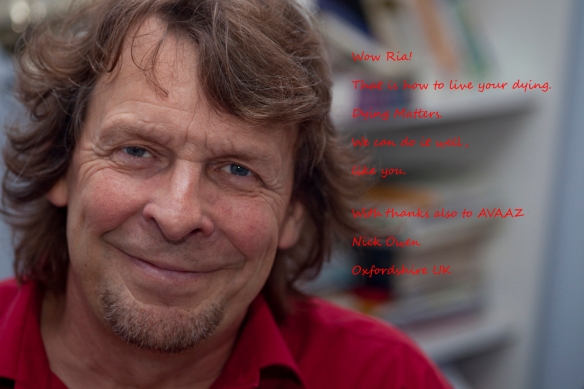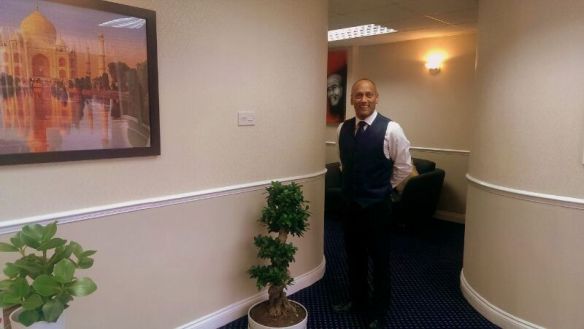This week’s guest blog is from Nick Owen.
I’ve spent more than thirty years as a psychotherapist working with people in Health and Social Services to private practice, and training psychotherapists and counsellors. I’ve written a course in “End of Life Therapy” and Barbara’s invited me to tell you something about it.
The course is relevant to nurses and doctors and social care practitioners as well as therapists. It explores the physical, social, emotional and spiritual dimensions of dying. Building on the well established concepts of Elizabeth Kubler-Ross it moves into an exploration of the ideas of Stanislav Grof, who has done pioneering work relating to different methods of counselling as they affect people who are dying.
The course invites a student to consider expanding the concept of counselling to embrace working with partners, family and community members, who all have a part to play in this process of living and dying.
Doing psychological therapy with people who are dying is often difficult and demanding.
A therapist may need to try to work with a client in a strongly altered state or in various levels of coma. Pioneering work by Arnold Mindell has shown us that it is possible and even desirable to attempt to do such work. One of the lessons focuses on this process of dancing on the edge of eternity.
People who have already done a first training in counselling and/or psychotherapy will find it both interesting and challenging, since it asks all sorts of fundamental questions and attempts to address a number of practical problems which stretch the normal boundaries of professional practice. It explores those big existential questions of the nature of reality, life and death. It aims to prepare counsellors and a wide range of professional care givers for the task of responding therapeutically, sensitively and creatively to end of life issues in their work. It provides helpful theoretical frameworks for thinking, feeling and understanding psychological processes specific to the end of life.
Find out more about this and other end of life support and training on Final Fling.

